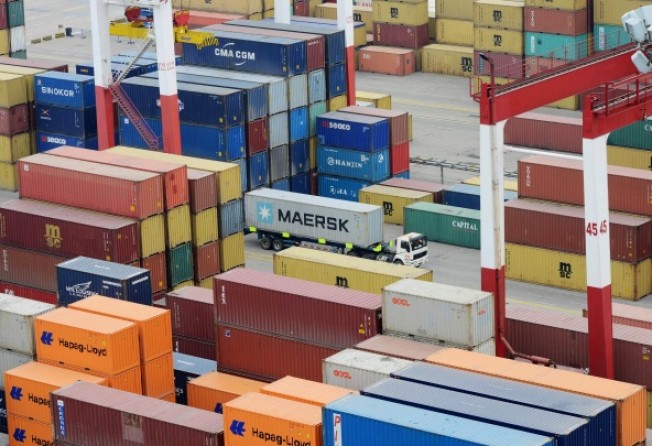'Fake invoice' curbs set to show slowing trade
Crackdown may put pressure on Beijing to shift growth towards domestic consumption

The mainland's crackdown on fake export invoices used to disguise money flows is probably cutting its trade figures, revealing subdued global demand that will weigh on economic growth.
Outbound shipments may have grown 7.1 per cent year on year last month, less than half April's reported 14.7 per cent, based on the median estimate of 34 economists before data due tomorrow.
Successful deterrence of fraudulent data through regulatory scrutiny of companies and banks would help restore trust in trade figures, while more accurate numbers may also highlight the urgency for Premier Li Keqiang to shift growth towards domestic consumption.
Weakness in exports could also test Li's reluctance to add stimulus to support the expansion of the economy.
Zhang Zhiwei, chief China economist at Nomura, who expects export gains last month to come in at 5 per cent, said: "The crackdown from China's foreign exchange authorities on fake invoicing will bring the inflated export growth down to the real trend, which is single digits."
More broadly, the mainland's economy "is weakening but is not collapsing", Zhang said.
The trade data from the General Administration of Customs will be followed on Sunday by National Bureau of Statistics releases on prices, industrial production, retail sales and investment that economists forecast will show little change from April growth figures.
In a separate survey last month, economists said January-April export growth was overstated by between 4 and 13 percentage points.
Shipments abroad probably rose 8.5 per cent year on year in the first four months of this year, based on the median estimate of 15 economists, less than half the official 17.4 per cent number.
Imports may have risen 8.25 per cent, according to 14 analysts' median estimate, against the government's 10.6 per cent figure. For comparison, South Korea reported a 1 per cent increase in exports in the first five months of the year, while Taiwan reported a 1.3 per cent rise for January-April. The mainland's official Purchasing Managers' Index for manufacturing has shown new export orders contracting for four of the past five months.
Slower growth in last month's official trade data might reflect measures announced by the State Administration of Foreign Exchange to crack down on speculative funds entering the mainland disguised as payments for trade. The currency regulator said early last month it would send out warning notices to companies whose goods and capital flows did not match, as well as those bringing in large amounts of cash.